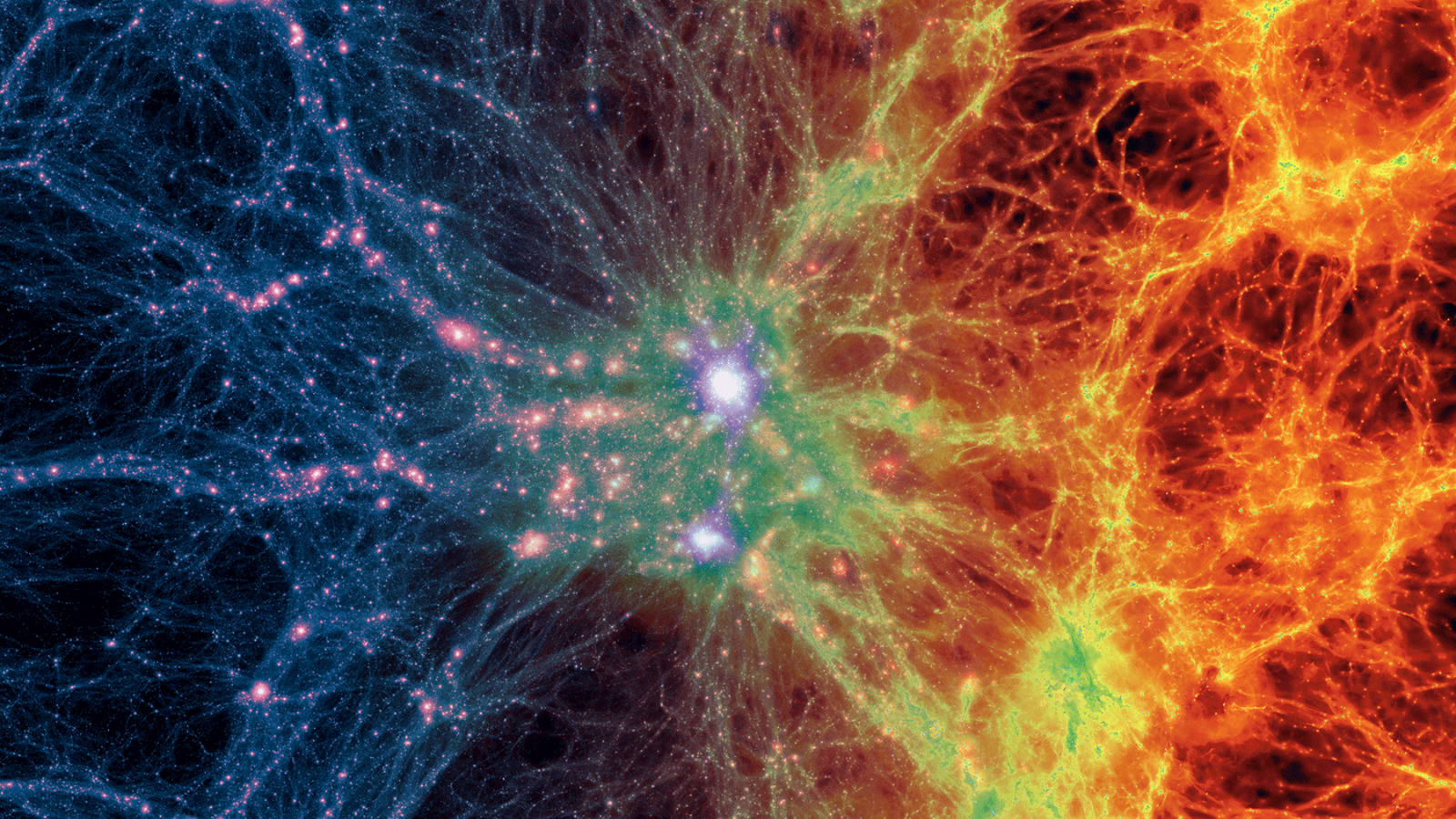Astronomers Surprised by White House Plan to Scuttle Hubble
The prospect of the White House cutting off funding for any possible mission to service and save the Hubble Space Telescope caught the astronomy community largely by surprise Friday.
Scientists who have studied Hubble's science value and the safety and practicality of servicing missions have concluded it is well worth saving. Congressional hearings in coming weeks were expected to discuss the options to extend Hubble's life.
Many astronomers deem such a mission crucial to the ongoing work of studying the origin and evolution of the universe, while some analysts view the $1 billion or more mission as too costly to be practical.
In a Space News story Friday, sources said the White House will direct NASA to drop plans for any servicing and instead mount a mission that would safely de-orbit the telescope. Hubble, expected to run out of batteries or lose its ability to point properly in the next 2-4 years, will be scuttled into the ocean under that plan.
"Great loss for science"
Holland Ford, a Johns Hopkins University astronomer who helped build the newest camera on Hubble, was surprised. "I sure hope it's wrong," he said of the news story.
"It means that a lot of excellent science that could be done will not be done," Ford said in a telephone interview Friday. "It will be a great loss for science. It will also be a great loss for the way in which Hubble communicates science through images to people all around the world."
Breaking space news, the latest updates on rocket launches, skywatching events and more!
Hope is not lost, however, because any final decision on the 2006 NASA budget will rest with Congress.
Kevin Marvel, deputy executive officer of the American Astronomical Society, said Friday there were inklings in recent days that the White House planned to take the Hubble funding out of the budget proposal.
If in fact no funding is provided in the President's budget when it is formally presented, then AAS officials, who represent thousands of astronomers, would still "work to try and make sure some sort of servicing is made available for Hubble," Marvel said in a telephone interview. "The Administration proposes, and the Congress disposes."
No replacement
Lofted into orbit on April 24, 1990, Hubble is doing some of its best science ever, astronomers say, because previous upgrades by spacewalking astronauts have made its suite of instruments ever more powerful. It has long outlived its initial mission scope.
There is no other telescope, currently operating or planned, on the ground or in space, that can see as far into the universe in visible light with Hubble's consistency, astronomers agree. The James Webb Telescope -- the closest thing to a Hubble replacement -- is planned for launch in the next decade. It will be an infrared observatory, however, and won't record visible light.
Meanwhile, Hubble's batteries are waning much like a cell phone that's been charged too many times. The orbiting observatory has been through more than a dozen gyroscopes and is down to four. Three are needed to point the telescope, and they fail regularly. Previous manned missions have replaced batteries and gyros.
If not serviced or directed into the ocean, Hubble will eventually fall to Earth -- likely several years from now -- in an uncontrolled and potentially dangerous fashion.
Odds are 50-50 that the gyro setup will fail by mid-2007, according to an analysis last year. It is unlikely the telescope will operate, as far as astronomy is concerned, beyond 2008 without being upgraded.
Hubble officials unaware
Hubble is operated for NASA by the Space Telescope Science Institute (STScI) in Baltimore. Steven Beckwith, its director, has been outspoken in his efforts to secure a reversal of the initial decision last January, by NASA Administrator Sean O'Keefe, not to service Hubble with a manned mission. That decision caught Beckwith and other astronomers by surprise just more than a year ago.
Public and political outcry led to O'Keefe considering the robotic option, which itself appears now on the chopping block.
Beckwith has not been informed of any such decision and did not want to comment extensively until he sees the White House budget.
"I'm sorry to hear it if true," Beckwith said in a telephone interview Friday. "Given the events of the last year, nothing is likely to surprise me."
Beckwith remains "very hopeful that given the tremendous science importance of Hubble and the great public benefit that it brings to [NASA], that they would include servicing of Hubble" in the planning of future space shuttle missions.
One of Hubble's most significant achievements was the unveiling last March of the deepest photographs ever taken of the cosmos, the results of the Hubble Ultra-Deep Field survey. The images have revealed some of the most distant galaxies ever seen, yet left astronomers scratching their heads over the strange shapes, concentrations and gaps contained in the tiny patch of distant sky. Researchers would love to do other similar deep-field projects to get a better handle on the overall galactic makeup of the most faraway places.
For months, given all the uncertainty, Beckwith and his colleagues have been making decisions about what astronomy projects to do based on the possible short lifetime.
With Hubble likely to die within three years or so -- possibly sooner -- and deep-field observations requiring extended telescope time, no such projects are likely to occur, officials have said.
Going against recommendations
Estimates for a robotic or manned mission have exceeded $1 billion, in some cases by a lot. But two blue-ribbon panels that have looked at the situation have recommended some form of servicing.
Louis Lanzerotti of the New Jersey Institute of Technology chaired the Committee on the Assessment of Options for Extending the Life of the Hubble Space Telescope. Lanzerotti's 20-person study board included space scientists, astrophysicists, robotics experts, and former astronauts, engineers, and systems reliability experts.
The study was sponsored by NASA, and the congressionally requested study from the National Academies' National Research Council (NRC) issued on Dec. 8.
"The Congressionally-requested report that I chaired confirmed the importance and significance of Hubble to understanding of the universe in which we live," Lanzerotti told SPACE.com today. "The Committee confirmed that Hubble is one of the great success stories of the United States space research program.
"In view of this, the Committee recommended that a fifth servicing mission should be carried out, and that the servicing should be done by a shuttle crew," he said. "The Committee was unable to obtain reliable cost data for a shuttle servicing mission to Hubble, and I understand that the GAO report on the Hubble was also not able to obtain such data."
-- Leonard David contributed to this report
Join our Space Forums to keep talking space on the latest missions, night sky and more! And if you have a news tip, correction or comment, let us know at: community@space.com.

Rob has been producing internet content since the mid-1990s. He was a writer, editor and Director of Site Operations at Space.com starting in 1999. He served as Managing Editor of LiveScience since its launch in 2004. He then oversaw news operations for the Space.com's then-parent company TechMediaNetwork's growing suite of technology, science and business news sites. Prior to joining the company, Rob was an editor at The Star-Ledger in New Jersey. He has a journalism degree from Humboldt State University in California, is an author and also writes for Medium.
